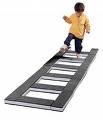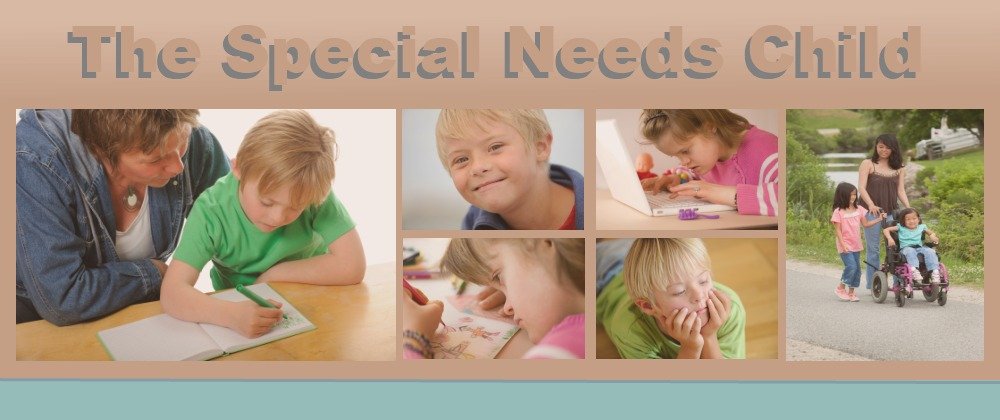|
SPECIAL NEEDS THERAPY
To make really good choices, about choosing the correct special needs therapy for your child, you will need to know what they actually do, how do these people
actually become qualified, how exactly are they suppose to help and how quickly.
Having the right information will help you make more informed descions.
SHOULD MY CHILD BE SEEING SOMEONE?
Children who aren't in school yet could benefit from seeing a developmental professional, if there is a significant delay in achieving developmental milestones, such as sitting, crawling, walking or talking, and if there are any concerns regarding other developmental delays.
Trust your instincts;
early intervention
will not only benefit your child, but your quality of life as a family too.
Signs that your child may benefit from special needs therapy:
- Developmental delays, such as sitting, crawling, walking or talking.
- Learning or attention problems at school.
- Sudden changes in appetite.
- Insomnia or increased sleepiness.
- An increase in physical complaints, despite a normal physical exam by your doctor.
- Management of a serious or chronic illness.
TALK TO CAREGIVERS, TEACHERS AND DOCTORS
 It also helps to talk to anyone that spends a lot of time with your child and knows them well, like a caregiver or a teacher.
It also helps to talk to anyone that spends a lot of time with your child and knows them well, like a caregiver or a teacher.
Does your child pay attention in class, what is his behaviour like around other children, gather as much information, so that you can decide?
what the best plan of action is.
Talk to your
peadiatrician
or doctor, share your concerns and let him do an evaluation to rule out any medical condition
that may be causing your child symptoms.
The doctor will then be able to refer your child for qualified special needs therapy, to get the help they need.
FINDING THE RIGHT THERAPIST.
So, how do you go about finding the right special needs therapist who has enough working experience with children?
Although experience and education are important, it is just as important to find someone that you and your child feel comfortable with.
So not only do you look for one that has the right experience, but also the best approach to help your child in the current circumstances.
Your doctor is probably your best bet for a referral, as most doctors have working relationships with the proffesionals that they refere.
Friends, colleagues or family members, someone who has had experience with the particular special needs therapist, can also recommend someone.
Before you commit to regular visits with any therapist, it is always a good idea to meet with them first or chat to them over the phone. This will at least give you
an idea of who you are dealing with.
Some special needs therapist's will schedule a consultation with you, which may be charged for, to get to know you and your child better, before committing to treatment.
Only use a therapist that you are comfortable with, otherwise the therapy may not be as effective.
Consider the following factors when evaluating a potential therapist:
- Is the therapist covered by your medical aid?
- If so, how many sessions are covered and is there an excess for you pay?
- What are their qualifications?
- What type of experience does the therapist have, working with children?
- Would your child like the therapist?
- Who will be available for special needs therapy when they are on holiday or ill?
- What type of special needs therapy do they specialise in?
- Would the therapist be willing to consult with you as well as treating your child?
The right therapist-client match is essential, so you might need to meet with a few before you find one that clicks with you and your child.
PREPARING FOR THE FIRST VISIT.
Especially with special needs children, it is important to let them know about an upcoming visit with an occupational, speech or physio therapist, or any special needs therapy that they might be going to.
Be honest about the reasons why your child or family will be going.
The reason will come up during the session, but it is important to prepare the child beforehand.
Explain to younger children that this type of doctor's visit does not include a physical exam, but this person talks and plays with kids and families
to help them solve problems and make them feel better.
Giving your child this kind of information before the first visit can help set the tone for the session.
It will also prevent your child from feeling isolated and singled out.
Keep providing reassurance that the family will be working together to solve this problem.
PROVIDING ADDITIONAL SUPPORT
 While your child has to cope with everything that is going on around him, and a lot of it will be strange and new, be there to listen, care and support.
While your child has to cope with everything that is going on around him, and a lot of it will be strange and new, be there to listen, care and support.
Patience is important, especially for younger children who cannot verbalise their fears and emotions.
Set some time aside to discuss your child’s worries and fears, with no outside interruptions.
This will let your child know that he is your first priority.
Here are some other ways to communicate openly and solve problems:
- Be open and honest with your child, and set time aside frequently, to talk.
- Show love and affection to your child.
- Set a good example by taking care of your own physical and emotional needs.
- Use your support system, you don't have too do this alone or cope with all of it on your own.
- Improve family communication by having "family meetings" and ending them with a fun activity.
- No matter how hard it is, discipline your child for inapropriate behaviour, ask your special needs therapist for strategies to encourage your child’s cooperation.
- Keep in touch with your child's therapist and stay up to date with the special needs therapy sessions.
- Be open to feedback from your child and the therapist, be it positive or negative.
- Respect the relationship between your child and their therapist.
- Enjoy favourite activities or hobbies with your child.
By recognising problems and intervening early on with special needs therapy, you can help your child - and your family - move through the tough times towards the happier, healthier
times that lay ahead.
Improve your Speech and Language Skills Today!
Sammy Speakwell’s™ Oral Motor Exercises
for Kids is the first therapeutic DVD created by speech-language pathologists that targets a key area in children’s speech therapy: Oral Motor Skills!
Need some fun “therapy” activity ideas to do at home?
You can visit Wendy at
Toddler activities at home
for creative and fun learning activities, to improve your child’s abilities. As you get more involved with your child's therapies, you will realise how much fun you two can have together, while learning without even realising you're doing it.
Related Articles
Occupational
What is occupational therapy? Occupational therapy is about playing and learning especially for special needs kids,play activities help asses skills...
Physical
What is physical therapy? There is a whole lot more to physical therapy for children, especialy if your child has special needs...
Speech
What is speech therapy? Speech therapy activities for parents of special needs children, helping to enhance language skills...
Fine motor skills
An article about how important it is develop fine motor skills in children, some tips and techniques for activities to develop related skills, especially for special needs children...
Gross motor skills
Learn about gross motor skills and special needs therapy, what they are, why they are important and the activities to improve them if there is a weakness...
Dysfunction of sensory integration
Sensory integration is the process whereby the brain organises and interprets information; special needs children cannot interpret their environment...
Low muscle tone
Hypotonia negatively influences the development of muscle actions; this disorder is particularly evident in children with special needs...
South African resources
The South African society of Physiotherapy
Occupational therapy association of South Africa
South Africa Speech-Language-Hearing Association
South African Institute for Sensory Integration
Return from Special needs therapy back to Home page
|
|

Sign up here
to receive
"The Cool Calm Special Needs Mom"
eBook
**FREE**
-STAY UPDATED-
With
"The Special Needs Child eZine"
Our Monthly Newsletter!
|
|
|

|
|

|



 It also helps to talk to anyone that spends a lot of time with your child and knows them well, like a caregiver or a teacher.
It also helps to talk to anyone that spends a lot of time with your child and knows them well, like a caregiver or a teacher.
 While your child has to cope with everything that is going on around him, and a lot of it will be strange and new, be there to listen, care and support.
While your child has to cope with everything that is going on around him, and a lot of it will be strange and new, be there to listen, care and support.




